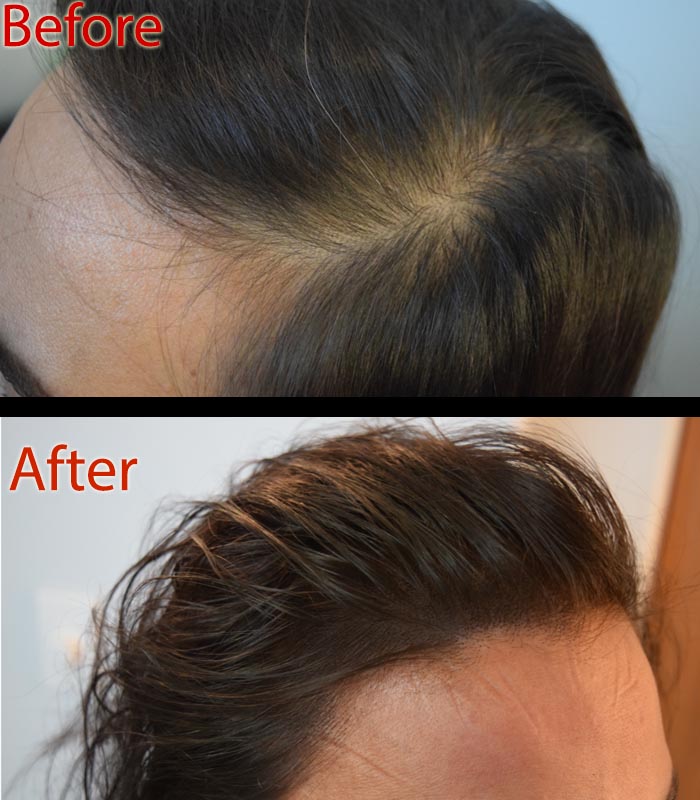Polycystic Ovary Syndrome (PCOS) is a hormonal imbalance that affects many women. One of the common and distressing symptoms of PCOS is hair loss in women. Let’s understand the reality of PCOS and women hair loss.
PCOS and Women Hair Loss: The Androgen Connection
The culprit in PCOS-related hair loss is excess androgen production. Androgens are typically considered male hormones, but women naturally produce them in small amounts. In PCOS, ovaries may produce too many androgens, disrupting the delicate hormonal balance.
The Hair Growth Cycle
Hair follicles go through a well-defined growth cycle with three phases:
Growth
This is the active growth phase where hair continuously grows.
Shedding
A short transitional phase lasting a few weeks, where hair growth slows down and prepares for shedding.
Resting
The resting phase may last 3 months, where the hair follicle is inactive and the hair eventually falls out.
Androgens and the Growth Cycle
There is excess androgen production during PCOS, which can shorten the anagen or hair growth phase. They also influence hair follicles to become more sensitive to dihydrotestosterone (DHT), a potent androgen that further miniaturizes hair follicles. This leads to finer, weaker hairs and eventually, complete hair loss.
Studies have consistently shown a link between PCOS and androgenetic alopecia or female pattern hair loss. Research suggests that women with PCOS are more likely to experience hair thinning and a receding hairline compared to those without the condition.
While androgens play a key role, other factors might contribute to PCOS-related hair loss. These include:
Insulin resistance
A common feature of PCOS, it can further disrupt hormonal balance.
Inflammation
Chronic inflammation, sometimes associated with PCOS, might damage hair follicles.
Nutrient deficiencies
Deficiencies in iron, folic acid, vitamin D, and other essential nutrients can impact hair growth.
What’s the Treatment?
Let’s explore some treatment options for PCOS-induced hair loss.
Medications, including anti-androgen and birth control pills, can help regulate hormones and reduce androgen production. The goal is to block the effects of androgens.
Another medication widely popular is minoxidil. This topical medication can stimulate hair growth in some cases. But the effects last as long as the treatment is underway.
While no hair loss treatment has permanent effects, there’s one that hides your hair loss woes and continues to be effective for years.
Scalp Micropigmentation for PCOS and Women Hair Loss Victims
While the above options aim to promote hair growth, some women with PCOS might not experience a complete reversal of hair loss. In such cases, SMP can be a viable alternative.
The non-surgical procedure creates the illusion of thicker hair by depositing tiny pigments into the scalp. It can camouflage various types of hair loss, caused by PCOS or other factors. SMP works on hair thinning and receding hairlines and has long-lasting effects.
Should You Go For SMP?
Hair loss can be a frustrating consequence of PCOS. However, understanding the science behind it empowers women to explore treatment options with their doctors. Scalp Micropigmentation offers a relatively safer alternative for those seeking a fuller-looking scalp.
A scalp professional is the best person to determine if SMP will work on you. Get in touch with Arizona SMP experts at DermiMatch Clinic. The Arizona scalp artists at the clinic have a proven track record of helping transform clients’ lives with their SMP expertise.
Scheduling a consultation is the first step. Do it now!

